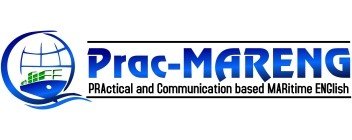International Maritime Organisation (IMO) promotes English as “the language of the sea” under Standards of Training Certification and Watchkeeping (STCW). The expectation is to reduce accidents occurring due to communication failures where 80 percent of world crews do not speak English as a first language. Seafarers as per their competency requirements are expected to have a good command Maritime English to carry out their daily jobs at sea. IMO Model Courses are used to deliver such training for seafarers with complimentary Standard Maritime Communication Phrases (SMCP) where maritime professionals are expected to use Maritime English in communications for situations such as safety and security on-board, emergency situations, on-board communication, customer service on passenger ships, and communication with maritime authorities and yet majority of maritime accidents are reported to be due to lack of linguistic communication skills of seafarers as rules and standards are not applied. Researches establish that a contributory factor to the increase in accidents is lack of communication skills of seafarers serving at sea and ashore (40 percent) (Nautical Institute, 2015). Marine accidents and incidents are reccurring due to a lack of English language skills of maritime personel. Besides this, learning language in professional context is always complex and problematic where there are variety of reasons why use of English language at sea has been the issue when the root cause of marine accidents are investigated. The world as repetitively reported needs competent seafarers whom have a good communication skills therefore there is a real need for seafarers to be trained as such that they acquire the skills and competence that instruction in colleges cannot deliver. The project will therefore develop a learning program considering different rank of seafarers, taking into account the experience they attained in each vessel to teach Maritime English based on the real activities specific to each type of vessel. The programme will have phases to pass it to seafarers working on different levels of command. PraC-MARENG project aims to:
- Identify the activities and tasks specific to each type of vessels that seafarers undertake on a daily basis
- Develop an online Training programme for each ranks therefore they can access to this real activities and tasks on board various type of vessels which incorporates latest technologies in the maritime sector
- Design and develop a learning and assessment tool that provides the user with a genuine certificate for the newly acquired skills based on experiential knowledge.
In doing this so, the platform will have following features:
- incorporates real communication at sea using SMCP,
- activities which are meaningful to students and which will motivate them to become committed to sustaining that communication to accomplish a specific goal.
PraC-MARENG Training Platform will have a tailor made programme for different types of ranks taking into account various types of vessels. The tool will have options to select levels of under competence that users would wish to attain on different levels of ranks.
The platform offered by the PraC-MARENG Training platform will have a direct impact on seafarers by giving them enhanced competence in English therefore decision making. The seafarers will have better skills and knowledge to understand and interpret tasks and activities on board the vessel hence better communication skill.
